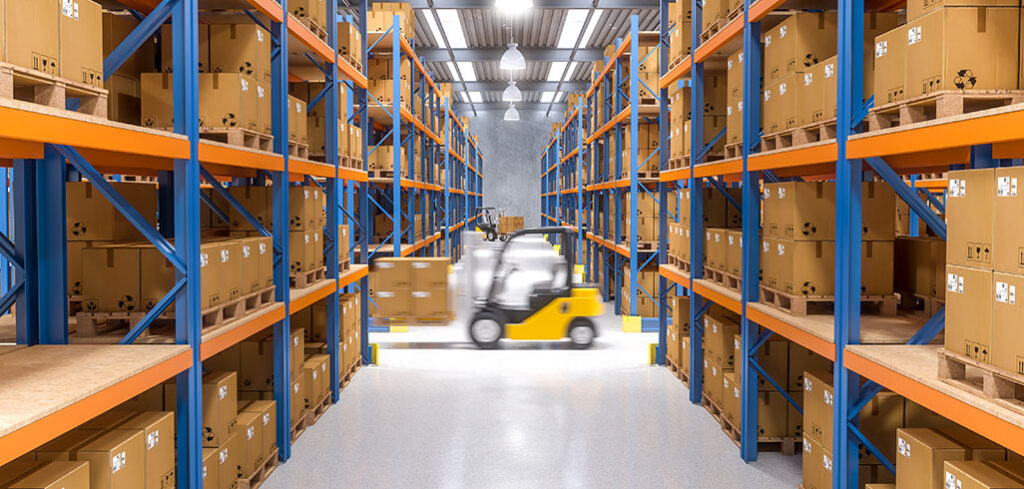Over the past couple of years, we have been asked on a few occasions to assist clients with new green-field pharmaceutical import and distribution operations in the EU. Ireland is often the location of choice due to being in the EU, the business-friendly environment, low tax, English language, and a strong pharmaceutical sector presence. Where the client wants a high level of control, they may decide to set up the Site of Physical Import (SOPI) themselves. Setting up and qualifying a GMP warehouse is usually the first step before licencing, as it will need to be listed on the authorisations at the later stages before launching in Europe. The warehouse needs to be ready to store and distribute the client’s medicinal products in compliance with good manufacturing practice (GMP) standards, and this will require several commissioning and qualification activities to ensure the quality, safety, and efficacy of medicines when they arrive and are stored at the facility.

Setting up a GMP warehouse in the EU requires the following:
- An up-front assessment to identify the critical aspects of the warehouse design, operation, and maintenance that may affect the quality, safety, and efficacy of the medicinal products stored there. This includes ensuring adequate storage space, security measures, temperature and humidity control, lighting, ventilation, and sanitation.
- Set up all required equipment designed, constructed, maintained, and cleaned to protect the products from contamination, deterioration, or damage.
- Installation of air handling units and building management systems to designate, manage and control the GMP areas as controlled ambient, i.e., maintained at 15-25°C and below 65% relative humidity and maintained at 2-8°C for refrigerated storage. This will be connected to a system to control this and alert if the temperature is not maintained.
- A validation showing that the warehouse consistently performs according to the required specifications under normal operating conditions. This would require testing and commissioning of air handling and temperature mapping of the facility under normal operating conditions.
- Then, the warehouse is included in an application for an MIA to the local EU competent authority, i.e., the HPRA in Ireland. The authorisation specifies the activities and types of products that the warehouse is authorised to handle.
- Finally, the warehouse will have to undergo an inspection by the competent authority to verify its compliance with GMP standards. This will then be recorded in the EudraGMDP database and used by customers to confirm the authorisation and compliance with GMP.

Thermal mapping is often one of the main exercises; this is a process of taking measurements across a standard period (usually a typical working week) and recording regular temperature and humidity data points within the storage area under differing conditions to identify any hot or cold spots that may affect the product quality. Thermal mapping must be carried out by experienced personnel using calibrated equipment, and they should follow a predefined validation protocol that sets out the scope, acceptance criteria and responsibilities for the thermal mapping.
Typically, there will be three different temperature mapping exercises in the first year of operation of the controlled warehouse locations. The first will be once the warehouse is ready for use before any product is introduced, and this will then be followed by Summer or Winter mapping once the warehouse is in use and the product has been introduced. This will allow the authorisation holder to verify worst-case conditions at extremes of hot and cold outdoor conditions. A risk assessment will determine the number of mapping sensors to use and their locations. It must include any areas where products are stored, pallet racking, packaging areas and temporary storage locations such as hold and reject locations. The conditions during the thermal mapping should encompass all normal operations, such as loading and unloading, short power outages, and door opening (loading bay roller doors).
The output of the temperature mapping should be a report that should include:
- An executive summary covering the findings,
- Details of the temperature data,
- Identification of any hot or cold spots,
- Recommendations for corrective actions or improvements,
- A conclusion on whether the warehouse meets the predefined acceptance criteria.

Before applying for the MIA authorisation, at least the empty mapping should be complete, and all other aspects of the requirements for the MIA should be inspection-ready. This includes the Pharmaceutical Quality System or PQS. The PQS should cover all aspects of the site operations, such as organisation, personnel, premises, equipment, documentation, production, quality control, outsourcing, complaints, recalls, self-inspection and risk management. The quality system must be based on the principles of quality assurance and continuous improvement and must ensure that the warehouse complies with the relevant legislation and guidelines. As a GMP company, you need qualified and competent personnel responsible for implementing and maintaining the quality system and performing the activities detailed in the PQS.
Setting up a GMP warehouse in the EU is not easy, but it is essential if you want to import, release and distribute medicines safely and legally. By following the GMP guidelines and obtaining an MIA, you will ensure that the products imported and stored meet the quality and safety standards expected by customers and regulators. Having your own compliant warehouse rather than outsourcing will also give you a competitive edge and enhance your reputation in the pharmaceutical market.
Orion GXP Consulting’s team of GMDP experts is ready to help you review your warehousing, licencing and EU launch strategy. If you need support, please get in touch with us today to ensure your products are safe and all required authorisations are ready for a trouble-free EU launch.
Get in touch today by emailing info@oriongxp.com or by calling us IRL – 07198 10101 or UK – 0203 475 0375
